Main Menu
Latest Blog Entry
User login
My books of the year: 2022
Tough to choose just one book
It’s that time of year (or slightly early as I am trying to help those looking to buy books before Christmas) to review and recommend what I have read. I started listing back in 2013 so that I didn’t read the same books by mistake.
I have split the top 5 into fiction and non-fiction and they are listed as I remember them, rather than as winners. If you are wondering if my choices are worth reading (they are just my recommendations) then consider that I have read 80 books this year: you are not hearing from someone who has read one book and tells everyone to buy it!
Remember: you can use the library to borrow books or, if you have the cash, buy from an independent bookseller. Both help authors more than clicking on Amazon.
Here we go:
Top 5 Non-Fiction Books
- Atomic Habits: James Clear. A well-structured, well-written summary of a lot of different works that I have read and habits that I have adopted. Clear has put them all together in a very good book whose ideas last beyond the time it takes to read it (Recommended by Sophie Jefferson, then Steve Baylis).
- How the World Really Works: Vaclav Smil. An outstanding overview of what is important for humanity: food, energy, air, transportation of materials and goods. Myth-busts useless forecasting and ideologies. He doesn’t come up with solutions but states facts that are essential to make informed decisions.
- A Writer’s Journal: Lucy Van Smit. A useful and inspiring practical workbook. I took a lot from this, not just about writing. One of the best books I have read about discovering purpose and a welcome antidote to all the macho-posturing, black polo-neck-wearing ‘gurus’ spouting from across the pond.
- Terry Pratchett: Rob Wilkins. An excellent biography that encapsulates the life and style of Terry Pratchett. Humorous, with excellent footnotes, and an insight into the writing process of this great author (gift from Pete Bunning).
- There Is Nothing For You Here: Fiona Hill. Superb autobiography/ thought piece of this coal miner and nurse’s daughter who ends up sitting around the White House. A grim series of class snobbery and misogyny events might have slowed Hill down but they didn’t stop her. Ends with a couple of optimistic chapters that entreat us not to leave any person or any place behind.
Top 5 Fiction
- Bleak House: Charles Dickens. A huge, entertaining novel set amongst a wide variety of people, situations and professions. Very rewarding.
- The Things They Carried: Tim O’Brien. A sublime collection of semi-autobiographical short stories set in the Vietnam War.
- A Manual for Cleaning Women: Lucia Berlin. A superb collection of mainly autobiographical stories. An eye for detail, black humour, and stunning turns of phrase. Wonderful.
- Station Eleven: Hilary St John Mandel. Excellent, non-linear, novel about the aftermath of a global pandemic. Clever use of the shifts between times and the well-drawn characters.
- Treacle Walker: Alan Garner. A sublime piece of fiction that is hard to describe. A magical, fabulous tale that I read in two sittings. So rich.
The Full List.
- Bleak House: Charles Dickens. Huge, entertaining novel set amongst a wide variety of people, situations and professions. Very rewarding.
- Fires: Raymond Carver. A collection of essays, poems and sublime short stories. Here’s a writer that has lived a tough, short life.
- Atomic Habits: James Clear. This is a well-structured, well-written summary of a lot of different works that I have read and habits that I have adopted. Clear has put them all together in a very good book.
- The End of the World and Other Catastrophes: Ed. Mike Ashley. Classic collection of SF short stories from familiar and unfamiliar authors. The Ray Bradbury one is frighteningly accurate.
- The Chequer Board: Nevil Shute. A novel set and written, in post-war Britain and Burma highlighting the lives of some ordinary people. More a series of scenes than an overarching novel but tackles racism, religious bigotry and infidelity well.
- Traveller at the Gates of Wisdom: John Boyne. A clever premise for a novel set over centuries of world history. I devoured this book and its writing. Truly original.
- Bowerman and the Men of Oregon: Kenny Moore. In-depth book that charts the rise of Oregon track and field and Nike. Starts with tales of Bowerman’s ancestors pioneering across the West, covers several Olympics and includes many anecdotes of runners and their training. Bowerman seems to be a Chuck Yeager-type character that forms part of the American myth.
- The Wave of my Mind: Ursula Le Guin. A collection of essays and speeches from this masterful writer.
- Consider Her Ways and Others: John Wyndham. Slipstream themed short-stories for the most part. A couple are satires about the objectification of women. Wyndham the feminist?
- The Killing Hills: Chris Offnut. A crime novel set in rural Kentucky with a Military Policeman protagonist. Good but the location is the best character.
- Station Eleven: Hilary St John Mandel. Excellent, non-linear, novel about the aftermath of a global pandemic. Clever use of the shifts between times and the well-drawn characters.
- Livewired: David Eagleman. Interesting research on neuroscience and how the brain adapts to its surrounds and stimuli.
- One Thing Leading to Another: Sylvia Warner Townsend. A collection of witty, sometimes fantastical, short stories. Old-fashioned writing that is worth picking through to find some killer sentences.
- Beowulf and Sellic Spell: J.R.R. Tolkien, ed. Christopher Tolkien. The epic tale translated and annotated. The tale is great, the annotations and lecture notes are dense and hard-graft but interesting. The supplemental tale and poems are good. Impressive.
- The Art of Impossible: Steven Kotler. A mish-mash of ideas gained from Ferris, Dweck, Duckworth and others. Some good points but not worth buying.
- A Manual for Cleaning Women: Lucia Berlin. A superb collection of mainly autobiographical stories. An eye for detail, black humour, stunning turns of phrase. Wonderful.
- Treeline: Ben Rawlence. Great tour around the arctic circle chronicling and detailing the different trees and the people around them.
- The High House: Jessie Greengrass. Well written account of a small family surviving and preparing for a climate event that could happen to us all.
- How the World Really Works: Vaclav Smil. Outstanding overview of what is important for humanity: food, energy, air, transportation of materials and goods. Myth busts useless forecasting and ideologies. He doesn’t come up with solutions, but states facts that are essential to make informed decisions.
- Follow the River: James Alexander Thorn. Fascinating and inspiring story about Mary Ingles escape from the Shawnee. Average novel though.
- How to Cook a Wolf: M.F.K. Fisher. Funny, dry and witty account of how to eat on a budget. Written in 1942 and revised 10 years later, it has useful tips for today.
- The Silver Branch: Rosemary Sutcliff. Children’s novel set in Roman Britain. Entertaining.
- Consider the Lobster: David Foster Wallace. Mind-bending, thought-provoking essays about a range of subjects. Dense footnotes require a magnifying glass! Interesting accounts on the McCain campaign trail, American English usage and talk show radio. Excellent.
- A Writer’s Journal: Lucy Van Smit. Outstanding, useful and inspiring practical workbook. I took a lot from this, not just about writing.
- The Heisenberg Principle: Frank Herbert. Short SF novel about genetic engineering and immortality.
- 52 Ways to Walk: Annabel Streets. Well-researched series of short articles that is a welcome break from ‘step-counting.’ Some good ideas for those that like to get out.
- On Purpose Leadership: Dominick Quartuccio. Poor mish-mash of soundbites and anecdotes. There are three or four good ideas but not worth a whole book.
- Ship of Strangers: Bob Shaw. Episodic SF novel. Easy to read and entertaining.
- Play Their Hearts Out: George Dohrmann. Sad, tragic and detailed account of a group of young basketball players who are exploited, sold false dreams whilst their coach becomes a millionaire.
- On the Beach: Nevil Shute. Classic dystopian novel. The plot is excellent but the writing is a bit stilted.
- The British and Irish Short Story Handbook: David Malcolm. Published in 2010, this gives an overview of the development of the short story, its genres, major contributors and analysis of key works. Very useful to help find great authors and their works.
- The Constant Gardener: John Le Carre. Excellent thriller about Big Pharma in Africa and corruption within the British Government.
- Imagine If…: Ken Robinson and Kate Robinson. Enlightening and inspirational précis of Robinson’s work on creativity and education.
- The Thinking Body: Mabel Ellsworth Todd. A classic physiotherapist text from the 1930s. Lots of good analogies and ideas but little practical advice.
- Endless Shadow: John Brunner. Short, confusing, SF novel from 1964.
- The Arsenal of Miracles: Gardner F. Fox. Mish-mash SF novel from 1964, sexist by today’s standards and a far too convenient ending.
- How we learn to move: Rob Gray. Very good account of how athletes learn skills. Great case studies and research used.
- American Rust: Philipp Meyer. Family drama novel set in post-industrial Pennsylvania. Excellent exploration of the relationship between two friends who have to deal with the consequences of one mistake.
- Another Now: Yanis Varoufakis. A thinly disguised fiction piece about an alternative to our money-grubbing capitalist society. Thought-provoking.
- Write it all down: Cathy Rentzenbrink. Disappointing fluff about writing a memoir.
- How to be Animal: Melanie Challenger. A look at how humans are animals. Instead of exceptional beings with ‘souls’ and therefore no more important than any other being. Except to ourselves.
- Italian Folktales: Italo Calvino. Huge tome of traditional tales compiled and retold by Calvino. The footnotes are excellent. One to be read in chunks.
- Disorder: Helen Thompson. Outstanding overview of how our modern geopolitical mess had evolved. Thompson covers three areas: Fossil fuel dependency and the wars around it; financial and monetary policy of the Western democracies (above my brain capacity); and the failure of democracies and how they lead to an autocratic elite. Puts context into our everyday lives.
- Maid: Stephanie Land. An autobiographical account of a single mother trying to break out of the poverty trap. Superbly written, heart-warming, despairing and inspiring.
- Do Hard Things: Steve Magness. A good review of how toughness develops from within rather than being imposed by a macho-type authority figure. Well-researched, well-written, useful examples.
- The Parable of the Sower: Octavia E. Butler. Amazingly prescient dystopian novel about a young woman surviving a breakdown in society. Great protagonist.
- The House of the Dawn: N. Scott Momaday. Novel about a Native American struggling to fit into society after returning from WWII. Flowing, descriptive prose interrupts the narrative, but a compelling backstory.
- Cider With Rosie: Laurie Lee. Wonderful autobiographical tale of a young boy growing up in a Gloucestershire village a century ago. Beautiful, funny prose that creates a vivid picture of rural life.
- The Ice at the Bottom of the World: Mark Richard. Rich, raw, funny and tragic short story collection of life in the American underbelly. I could taste the despair.
- Functional Exercise Prescription: Eyal Lederman. Detailed look at pain, injuries and how patients recover. Very good models on management and treating the person not just the injury.
- The Way West: A.B. Guthrie. A good novel about a wagon train heading to Oregon.
- How Minds Change: David McRaney. A very interesting account of how Street Epistemology and deep canvassing work in the populations entrenched in belief systems: climate change deniers, flat-earthers, and religion.
- Rogues: Ed. George R.R, Martin. Collection of short stories. Some are excellent, and a few fillers. Worth reading to discover different authors.
- The Brothers Karamaov. F. Dostoevsky. Epic novel that covers religious, familial and societal themes. Rambling in places but worth the investment.
- House of Prayer No. 2: Mark Richard. Sublime writing in this memoir of a “special child” growing up in the American South. Interesting stories, well told. Inspirational for writers.
- Invisible Child: Andrea Elliott. Sad journalistic tale of a homeless child and her family growing up in New York City. Excellent background and commentary.
- Gotham Writers’ Workshop Fiction Gallery: Ed.Alexander Steele & Thom Didato. Superb collection of short stories. Insightful introductions and interviews too.
- The Social Distance Between Us: Darren McGarvey. Tough reading this account of modern Britain and how it got into this state of unequal opportunity. Well worth it to see McGarvey’s insights and reflections.
- Song of a Dark Queen: Rosemary Sutcliff. Good YA novel about Boudicca, told from the first-person perspective of her harper. Builds nicely throughout.
- The Stories of Frank O’Connor: Frank O’Connor. Great collection that link together in what seems like an autobiographical thread.
- A Field Guide to Writing Fiction: A.B. Guthrie. Superb little book that has clear and precise ideas on writing.
- Never Let Me Go: Kazuo Ishiguro. A coming of age dystopian novel that centres on the relationship between three adolescents and their role in society. Great prose but the plot is a little contrived.
- Living Leadership: G.Binney, C. Williams, G. Wilke. Excellent book on practical leadership. Based on several case studies and research it gives good evidence and examples on how leadership can be exhibited at all levels. Refreshing and useful.
- Vintage Contemporary Short Stories. Ed. Tobias Woolf. Wonderful collection of short stories published in 1994. Half of them mention the Vietnam war in some form.
- Treacle Walker: Alan Garner. Sublime piece of fiction that is hard to describe. A magical, fabulous tale that I read in two sittings. So rich.
- The Airs of Earth: Brian Aldiss. A collection of hard SF stories that have dated badly. Turgid writing with only a couple of plots that stand up well now.
- The Things They Carried: Tim O’Brien. Sublime collection of semi-autobiographical short stories set in the Vietnam War.
- Giving Up the Ghost: Hilary Mantel. Autobiography of the author’s early life and horrendous treatment by doctors. Great writing.
- Hood: Stephen Lawhead. Mediocre rewriting of the Robin of Hood story.
- Charity: Mark Richard. Collection of raw short stories that reveal the underbelly of the American poor.
- Snow Country: Yasunari Kawabata. A short, poignant novel about a Geisha who falls in love with an entitled gentleman. Great prose and understated descriptions, episodic
- Terry Pratchett: Rob Wilkins. Excellent biography that encapsulates the life and style of Terry Pratchett. Humorous, with excellent footnotes, and an insight into the writing process of this great author.
- The American West: Dee Brown. A good summary of the brief period of the settling, travelling and fighting that led to the mythology. Interesting personal stories and details.
- A Psalm for the Wild Built: Becky Chambers. Wonderful, original novella. As delightful to read as one of the protagonist’s cups of tea.
- You Can’t Win: Jack Black. Fascinating autobiography of this small-time criminal and hobo set around the turn of the twentieth century.
- Five Days at Memorial: Sheryl Fink. Long, in-depth look, at the disaster-struck hospital in New Orleans after Hurricane Katrina. Very detailed and prescient about how unprepared we would be for Covid.
- Idle Thoughts of an Idle Fellow: Jerome K. Jerome. A series of humorous essays, published in 1886, is still relevant today.
- Jane’s Country Year: Malcolm Saville. Delightful account of a young girl in post-war rural England.
- There Is Nothing For You Here: Fiona Hill. Superb autobiography/ thought piece of this coal miner and nurse’s daughter who ends up sitting around the White House. A grim series of class snobbery and misogyny events might have slowed Hill down but they didn’t stop her. Ends with a couple of optimistic chapters that entreat us not to leave any person or any place behind.
- A Prayer for the Crown Shy: Becky Chambers. Another Monk and Robot novella is thought-provoking and easy to read except for the annoying ‘they/them.’ pronouns that slow down the pace of reading.
- Bossypants: Tina Fey. A funny insight into parts of the TV-writing-comedy life. Easy to read but worth it.
- Before We Get Started: Bret Lott. A series of excellent essays about the writer’s life. The chapter on rejection is essential reading.
- Belonging: Kathryn Jacob, Sue Unerman & Mark Edwards. It looks at the important topic of diversity, inclusion and equality at work. Good in parts but repetitive and overlong in others. It has good ideas but is aimed at those in companies.
- The Imaginary Girlfriend: John Irving. A short autobiography about this accomplished author and wrestling coach.
- Kilvert’s Diary: Francis Kilvert. The thoughts of a country vicar in the 1870s. His descriptions of young girls make uncomfortable reading. His observations of country customs and folklore are a valuable resource.
- Oliver Twist: Charles Dickens. The classic novel that reveals the underworld and drudgery of paupers in London.
Further Reading
Client Testimonials
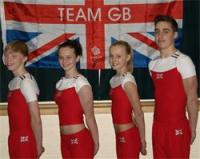 Weston AGC
Weston AGC
I first met James at a South West Gymnastic conference and thought he was superb then, and still do! James' ability to adapt to different sports and levels is excellent, and he is superb at getting his message across to different ages of gymnasts. He did a workshop at our club for our competitive gymnasts and it was superb, His work was of great value to a wide range of ages and levels, with a tremendous emphasis on posture and injury prevention. We have been able to put his training methods into practice and are seeing an improvement in the all round strength and fitness of our gymnasts.
More


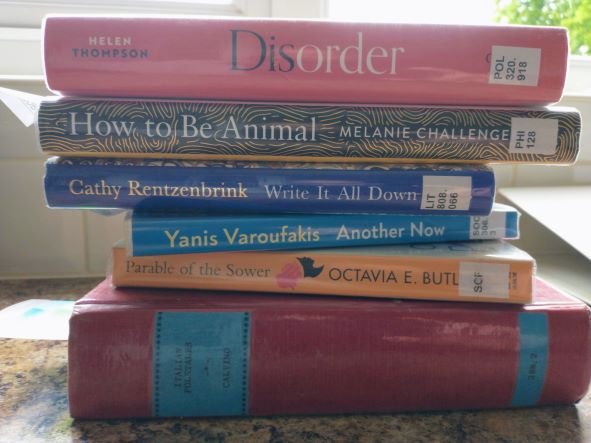
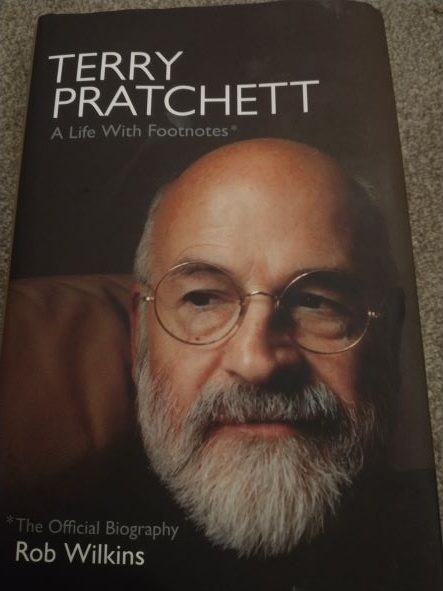
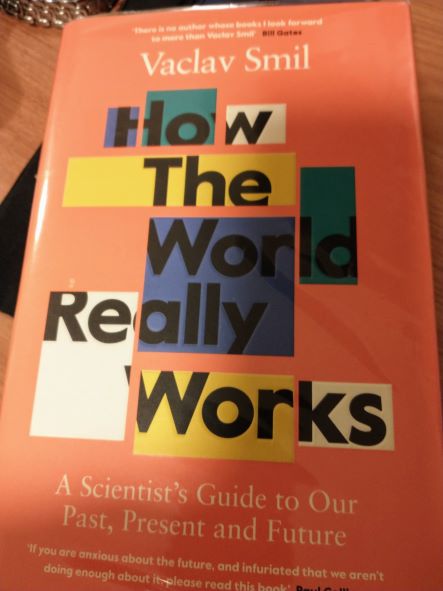
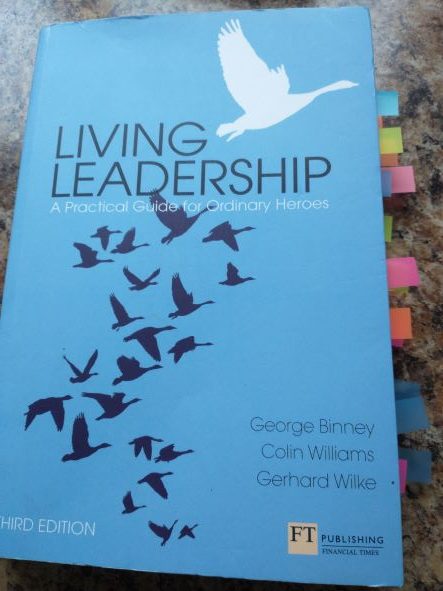
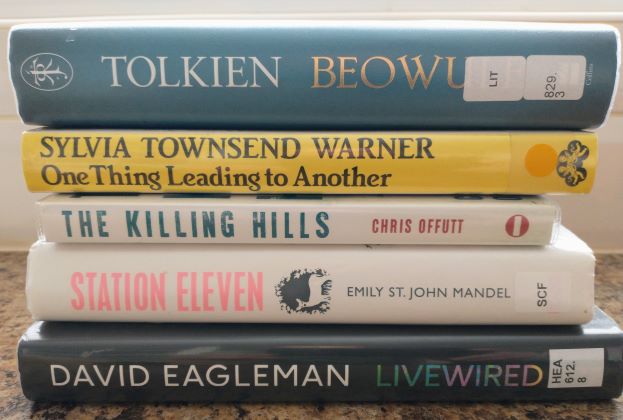
Comments
Let`s hope next year we can be less dystopian, so much positive thinking needed to turn our sad world around, a lot of new ideas to move us on from our rusty tracks. Would love to spend Christmas with a big Dickens or Mrs Gaskell but maybe I will try Becky Chambers and some solarpunk. The early Greek philosophers had some great ideas (see the Penguin Early Greek Philosophy) and if you can find a copy, sci-fi writer L Sprague de Camp put together a volume on ancient technologies in the early 1960s which I think has been reprinted. Maybe we are just too complicated.
Becky Chambers will cheer you up, no doubt. The Fiona Hill book has a positive message at the end and the Pratchett biography is a delight.